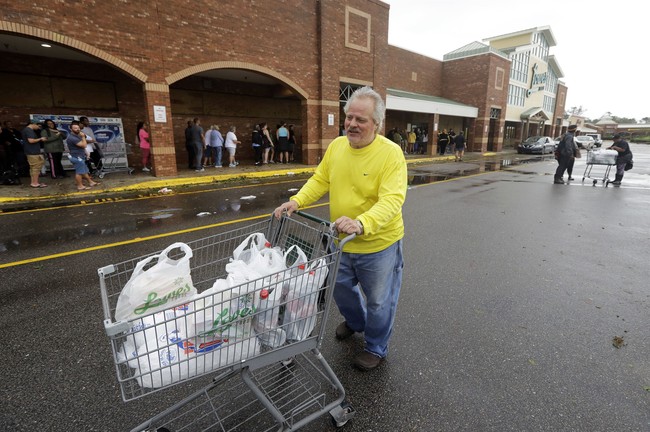
No matter where one comes down on the overall tariff question, there’s one thing we should all be able to agree upon: grocery tariffs should be off the table.
American families are already under massive financial pressure, including from already-inflated grocery prices. Adding tariffs on staple foods further hikes prices for families when they hit the grocery store to stock up for the week. Consumers will be rightly enraged when they realize they are paying even more next week than they did last week.
Many Americans might not even have realized yet that the Trump administration’s announced scheduled tariffs will hike the price of food at their local grocery store. As CNN reported last week, “Shoppers can expect to see prices rise on seafood, coffee, fruit, cheese, nuts, candy bars and other imported foods, according to experts. Items that contain ingredients and packaging like plastic and aluminum from other countries will also be hit.” CNN also cited a Yale University study that estimated a 2.8% hike in food prices, including a 4% hike for fresh produce. This is all bad news for consumers at a very bad time.
Tariffs are taxes, and the current effort to leverage better trade deals could well make sense in the short term to fend off economic aggression. (“Imposing tariffs or trade barriers of any kind,” then-President Ronald Reagan said in a cautionary 1987 radio address about tariffs, explaining his rationale to impose a limited set on Japan, was a step he “was loath to take.”) Yet targeting vegetables, fruits, and other foods that Americans buy every day simply punishes American families — certainly not the economic aggressors the Trump administration is setting out to challenge. As such, a targeted exemption for food products is good policy and will keep the pain already on the average family paying higher than anticipated prices at the grocery store from growing exponentially worse.
Look no further than the egg price situation to see how food tariffs are bad policy. Just in time for Easter and Passover, egg prices have spiked again. The Arizona Republic reported this week that, “Despite the price of wholesale eggs starting to fall, egg prices will remain high heading into two major eggy holidays: Passover, which started April 12, and Easter, which falls on April 20.” According to the Consumer Price Index, egg prices average $6.23 a dozen in March, which is the highest they’ve ever been. A year ago, eggs cost under $3.00 a dozen. (The bird flu led to the Biden Administration ordering many egg producers to kill off their stock of chickens. The prices spiked, but not as much as today.)
American importers currently rely on Mexico and Turkey to fill the gap of U.S. producers who just don’t have enough egg-laying chickens to meet demand. Fox News reported on April 8, “The USDA Agricultural Marketing Service found in a report released last week that the overall value of U.S. egg imports was up 328% month-over-month and 450% year-over-year.” Secretary of Agriculture Brooke Rollins argues for deregulation and repopulation post-avian flu, even while admitting that tariffs will hike prices of eggs. That explanation will not fly with American consumers.
Grocery tariffs will serve also to further limit healthier food options for American shoppers. How is Bobby Kennedy going to Make America Healthy Again when American consumers can’t afford normally affordable fresh items, such as dairy products imported from Canada and New Zealand, tomatoes from Mexico, bananas from Guatemala, and so forth? We can’t be pushing a healthy America agenda on the one hand whilst making access to healthier choices more difficult for American families, now can we? Healthy organic foods must be affordable. Many of these products are not grown in large amounts in the United States — avocados and pineapples are good additional examples to those mentioned above. Exempting such things from tariffs will forward the laudable goals of the MAHA movement.
Related: 20 Million Americans Are Hoping Trump Will Save Vaping
Finally, as a political issue, higher grocery prices are poison for the party in power. President Trump won his election, in part, on insisting he would bring prices down and pummel back the inflation of the Biden era. In that case, Mr. President, what planet does one have to be on to conclude that grocery tariffs are a means to this end in any way, shape, or form?
So again, I say a targeted exemption for imported groceries makes sense as good policy and better politics, not to mention basic human compassion in acknowledging that American families should not be targets or victims in this global economic dustup the president has picked. C’mon, man! No grocery tariffs.
Help PJ Media continue to tell the truth about the Trump administration’s battle to usher in the Golden Era of America. Join PJ Media VIP and use promo code FIGHT to get 60% off your membership!







